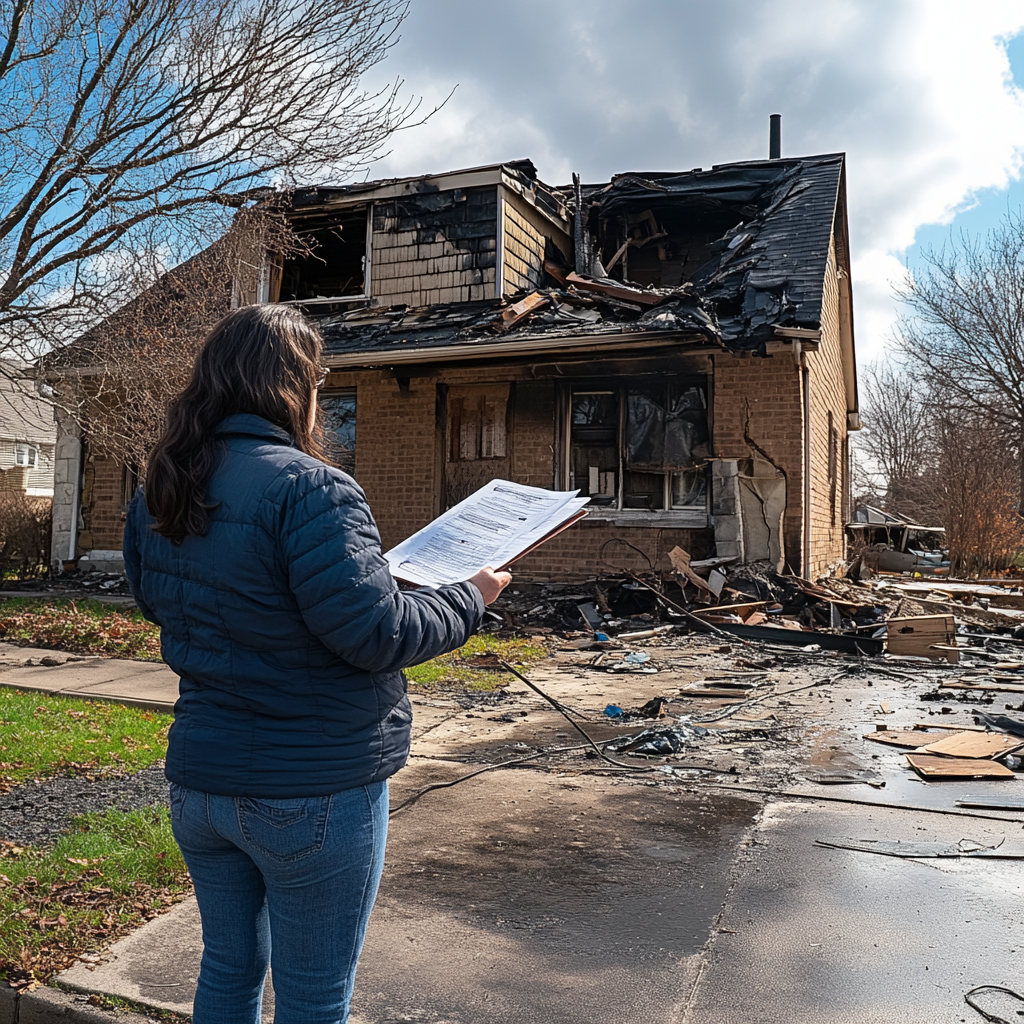How Do Public Adjusters Get Paid? A Clear Guide for Property Owners
TL;DR: How Do Public Adjusters Get Paid? | Top 5 Facts You Should Know
Contingency-Based Fees: Public adjusters earn a percentage (typically 10%-20%) of your final insurance settlement.
No Upfront Costs: You pay nothing unless they successfully settle your claim.
Fees Come From the Payout: Their compensation is deducted from the total settlement amount—not out-of-pocket.
Value-Driven Results: A skilled adjuster often increases your payout significantly.
You Stay in Control: Review contracts, understand terms, and ensure transparency before signing.
Know your options. Hire smarter. Maximize your claim.
Understanding Public Adjuster Fees
If you've recently experienced property damage and are considering hiring a public adjuster, you're likely asking: how do public adjusters get paid? It's a smart question—and one that every residential and commercial policyholder should understand before signing a contract.
In this article, we’ll break down exactly how public adjusters earn their fees, what to expect in your agreement, and why their services often pay for themselves. We’ll also clear up common misconceptions, review average fee percentages, and provide key insights to help you make confident decisions during the insurance claims process.
What Is a Public Adjuster?
Before diving into payment structures, it’s important to understand what a public adjuster does. A public adjuster is a licensed professional who advocates on behalf of policyholders during an insurance claim. They assess damage, estimate repair costs, handle documentation, and negotiate with your insurance company to help you secure a fair settlement.
Unlike insurance company adjusters, public adjusters work only for you, the policyholder—not the insurance carrier.
How Do Public Adjusters Get Paid?
Public adjusters typically get paid through a contingency fee model, meaning their compensation is a percentage of your final insurance settlement. They only get paid when you get paid.
Standard Fee Range
Typical range: 10% to 20% of the total claim settlement
Large-loss claims: For high-value claims (e.g., over $1 million), fees may drop to around 5% to 10%
Regulatory limits: Some states enforce fee caps. For example, Florida limits fees to 10% during a state of emergency
This fee structure aligns the adjuster’s motivation with your outcome—encouraging them to maximize your claim.
No Upfront Fees
Most public adjusters do not charge any upfront fees. You won’t owe anything until your claim is resolved and paid.
Flat Fees or Hourly Rates (Rare)
Though less common, some adjusters may offer alternative billing options:
Flat fee: A fixed cost, regardless of the claim amount
Hourly rate: Typically used only for consulting services
Example: Contingency Fee in Action
Let’s say your public adjuster negotiates a settlement of $150,000. If their fee is 10%, they would earn $15,000, leaving you with $135,000 for repairs and recovery.
Because public adjusters often increase total claim payouts, the value they bring frequently outweighs the cost.
Why Hiring a Public Adjuster Can Be Worth It
Many property owners find that hiring a public adjuster results in:
Larger settlements
Faster claims processing
Reduced stress and paperwork
A study by OPAGGA (Florida’s Office of Program Policy Analysis and Government Accountability) revealed that policyholders who used public adjusters received 747% higher payouts on average compared to those who didn’t.
What to Look for in a Fee Agreement
Before signing a contract, carefully review the fee structure and ensure:
The contingency percentage is clearly listed
There are no hidden fees or ambiguous terms
A clear cancellation policy is included
The adjuster is licensed and bonded in your state
Reputable adjusters will take the time to explain the contract and answer your questions.
Do Public Adjuster Fees Come Out of Pocket?
No. Their fees are deducted directly from your settlement. You won’t pay anything out of pocket. If no payout occurs, you owe nothing.
This “no recovery, no fee” model protects you as the policyholder.
Can You Negotiate a Public Adjuster’s Fee?
In some cases, yes. Fee percentages may be negotiable based on:
Claim complexity
Size of the loss
Applicable local regulations
While it’s okay to discuss fees, remember that the most experienced adjusters can justify their rate with proven results.
Common Misconceptions About Public Adjuster Fees
1. "They take half of your settlement."
False. Most take 10% to 20%, and that’s after increasing your total payout.
2. "I can’t afford one."
Wrong. There are no upfront costs—they’re paid from the settlement.
3. "They delay the claims process."
Incorrect. A skilled public adjuster can actually speed things up by handling paperwork and negotiations efficiently.
When Should You Hire a Public Adjuster?
Consider hiring a public adjuster if:
Your claim is large, complex, or overwhelming
The insurance company is delaying, underpaying, or denying your claim
You want to maximize your settlement and reduce stress
Recap: How Public Adjusters Get Paid
Public adjusters work on a contingency fee basis
Fees generally range from 10% to 20% of the settlement
No upfront payments are required
Fees are deducted from the final claim payout
Their incentive is aligned with your success—they get paid when you do
Final Thoughts
Knowing how public adjusters get paid empowers you to make better decisions during the claims process. Their fee structure is performance-based, meaning their success depends on yours.
If you’re facing a residential or commercial property damage claim, let us help. From start to finish, we’ll fight for every dollar you deserve.
Contact us today for a free consultation. Let’s get you what you’re owed.
Shoreline Public Adjusters, LLC
780 Fifth Avenue South
Suite #200
Naples, FL 34102Email: hello@teamshoreline.com
Phone: 954-546-1899
Fax: 239-778-9889


